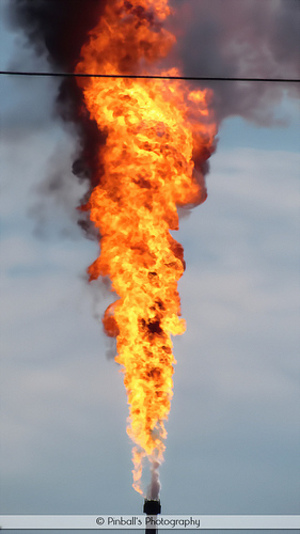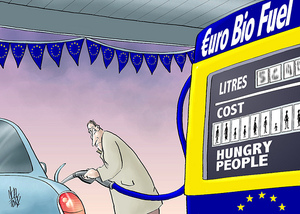 If you feel good at the moment, maybe you should move on or read this at a more appropriate time.
If you feel good at the moment, maybe you should move on or read this at a more appropriate time.
That out of the way, humans have passed the 7 billion people mark and mankind is still growing in size. Despite the most successful and largest campaign to put it under control – the one undertaken in China over the last few decades – that growth not only remains strong, but is also accelerating.
We have taken a large part of potentially arable land – the best, most fruitful parts, basically – away from the rest of the live world and dedicated it to producing food for ourselves and for the food of our food. And the food of our machines, as of late. Aside from all the nutrients, what we need from food is energy. At least 90% of that energy now comes from fossil fuels. In terms of food production, we are eating oil: look at your plate at your next meal and see how you feel about that. Many oil-extracting countries (the more wide-spread euphemism is “oil-producing”, but oil is not actually produced) have reached peak oil extraction: a point at which they cannot extract oil as fast as it is being consumed. Other oil-extracting countries treat the amount of oil they can still extract as a state secret of the highest rank, but external estimates aren’t optimistic.

The clash between a growing desperate demand for oil necessary to feed people and a global shortage of oil which at this point seems imminent is poised to happen during the following few decades. In fact, there are sources who consider it has already began and if you look around, it is hard to shake the feeling they might be right. The extreme thirst for oil is obvious from the amount of damage we are now prepared to suffer to get to it, as illustrated by the Deep Horizons disaster, the Alberta tar sands, but most prominently by the US occupation of Iraq and the destabilisation of Libya, Egypt and now Syria and Iran. The other effects of a global oil shortage can arguably be seen in the global “economic” crisis, a phenomenon predicted to happen when peak oil collides with rising oil demand…a crisis which shook the most well entrenched, best protected countries of the developed world: people are continuously on the streets of the USA, Spain, Greece, confronted with a violent police reaction the likes of which have not been seen on those streets for decades.
So there we are, watching a slow-motion disaster unravel in front of our eyes: over the web, in the papers, on your living room TVs. Because of the profound dependence on oil on the one hand and the growth inertia of a population which has already surpassed 7 billion people on the other, the probable outcome is a humanitarian disaster which would make all wars in the history of mankind look like a minor inconvenience: a disaster the likes of which humanity has never before seen. When billions of people no longer have food, one of the consequences will be that billions of them will die of starvation. Another is that some of the remaining billions will not choose the means to secure the next meal: although it may not seem that way at first glance, this is a recently popular example. That is one way to get the human population down to a more sustainable number. Hunger, that is: the drone just triggered the article.
All we have to do to make it happen is do nothing, really. Just get back to whatever it was you were supposed to be doing instead of reading a gloomy article of some insignificant nobody on the web. By tomorrow, as likely as not, it will be as if you never read any of this, anyway.